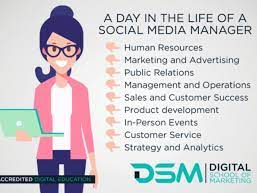small business social media

small business social media
small business social media has become an essential tool for businesses of all sizes, especially for small ones. It is a powerful platform that allows you to reach and engage with your target audience, build brand awareness, increase website traffic, and boost sales. With the right social media strategy in place, you can level the playing field against larger brands and make a name for yourself online. In this blog post, we’ll dive into the benefits of social media for small businesses, explore the different types of social media platforms available to you, share tips on setting up your accounts effectively and creating engaging content that resonates with your followers. So buckle up as we take a deep dive into everything related to small business social media!
small business social media
For small businesses, social media provides a cost-effective way to build brand awareness and cultivate relationships with potential customers.
One of the biggest benefits of social media for small businesses is the ability to reach a larger audience without breaking the bank. Unlike traditional advertising methods such as TV or print ads, social media platforms allow you to target specific demographics based on age, location, interests, and more.
Another benefit of using social media for your business is that it helps establish credibility and trust. By consistently creating valuable content that resonates with your followers and engaging in meaningful conversations online, you can position yourself as an authority in your industry.
Social media also gives you real-time feedback on how well your content is performing through likes, shares, comments, and other engagement metrics. This information allows you to adjust your strategy on-the-fly based on what’s working best for your audience.
Social media fosters two-way communication between businesses and customers. Customers can voice their opinions about products or services directly to brands which helps improve customer experience while building customer loyalty over time.
The Different Types of Social Media Platforms
One of the most popular social media platforms is Facebook. With over 2 billion active users, it’s a great platform for businesses looking to connect with customers through targeted ads and engaging content.
Instagram is another popular choice, especially for those in creative industries such as fashion or food. The visual nature of the platform makes it perfect for showcasing products and services.
For more professional networking, LinkedIn is a must-have. It allows businesses to connect with other professionals in their industry and share insights on industry trends and news.
Twitter is also a valuable tool for small businesses, providing an opportunity to interact directly with customers through real-time conversations and quick updates on new products or services.
There are newer platforms such as TikTok that have gained popularity among younger audiences. These can be useful for businesses targeting this demographic specifically.
Understanding the different types of social media platforms available can help small business owners make informed decisions about which ones will best serve their needs.
Setting up Your Social Media Accounts
Setting up your social media accounts is the first step towards building an online presence for your small business. The process may seem daunting, but it’s actually quite simple.
Begin by selecting the platforms that align with your brand and target audience. Facebook, Instagram, Twitter, LinkedIn, and Pinterest are popular choices among businesses.
Next, create an account on each platform using a consistent username and profile picture across all channels.
Fill out each profile completely with a detailed bio or description of your business along with contact information such as email addresses or phone numbers.
It’s also important to customize the look of each platform to match your brand’s aesthetic by adding branded cover photos or background images.
Connect all of your social media accounts together by including links on each platform’s profile page to increase visibility across different channels while making it easy for followers to find you wherever they prefer to engage.
Creating Content for Your Social Media Accounts
When it comes to social media, content is king. The type of content you post can make or break your social media presence. It’s important to create high-quality and engaging content that resonates with your audience.
One way to create great content is by knowing your audience. Who are they? What do they like? What are their interests? Once you have a good understanding of who your audience is, you can tailor your content to meet their needs.
It’s also important to vary the types of content you post on social media. Don’t just stick with one type of post, mix it up! Share photos, videos, blog posts, infographics and other interesting pieces of information related to your business or industry.
In summary, creating great social media content involves knowing who your audience is and tailoring messages accordingly while mixing types of valuable information shared through interesting visuals at appropriate frequencies throughout different platforms available online today!
Conclusion
Social media has become an essential tool for small businesses to connect with their target audience, boost engagement and drive sales. With the growing number of social media platforms available today, it’s important to identify which ones are most relevant to your business goals.
Remember that there’s no one-size-fits-all approach when it comes to using social media for small businesses. It takes time and effort to build a successful online presence but by staying authentic and keeping up with trends in your industry, you’ll be able to reap the benefits of this powerful marketing tool.




